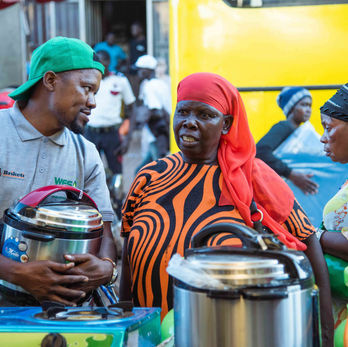
Partner: Wana Consortium
Promoting Clean Cooking Solutions in Urban Informal Settlements:
The ENACT Project in Kampala
About ENACT

The ENACT project, funded by the UK Government through the Transforming Energy Access (TEA) platform managed by the Carbon Trust, aimed to create a supportive environment for collaboration between the public and private sectors. Its goal was to improve access to clean, safe, reliable, and affordable energy—particularly clean cooking solutions—for the urban poor in African informal settlements. The project was implemented in Freetown, Sierra Leone, and Kampala, Uganda, by ICLEI Africa and Energy 4 Impact.
In Kampala, the ENACT project was supported by the Kampala Capital City Authority (KCCA) and the Ministry of Energy and Mineral Development (MEMD). The Wana consortium engaged the Uganda National Alliance on Clean Cooking (UNACC) to promote clean cooking technologies within Kisenyi I, II, and III and surrounding areas. This initiative successfully reduced reliance on traditional wood biomass and enhanced energy efficiency, contributing to sustainable urban development.
Project Activities
Clean Cooking Exhibitions

As part of the ENACT project, UNACC organized a series of exhibitions from 22nd April to 15th May 2024 to promote clean cooking technologies in the urban informal settlements of Kisenyi I, II, and III in Kampala. These exhibitions showcased a range of innovative clean cooking solutions, including electric pressure cookers, carbonized briquettes, LPG stoves, and improved cookstoves.
The events were strategically held in accessible locations within the settlements to engage local communities, raise awareness about the benefits of clean cooking, and encourage the adoption of these technologies. The exhibitions also provided opportunities for direct interaction between technology providers and residents, facilitating demonstrations, discussions, and the dissemination of educational materials.
Through these activities, the project successfully reached a significant portion of the urban poor, fostering a deeper understanding of clean cooking's importance and driving behavioral change towards more sustainable energy practices.

























